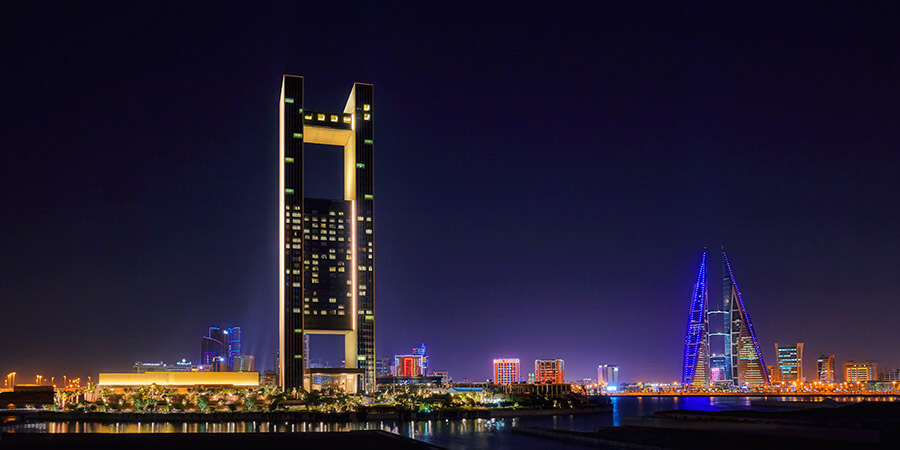Smooth check-ins and luggage robots are not the only innovative advancements guests expect when checking in to their favorite hospitality establishments. Tech-savvy hotels are now transforming the guest experience through technology investments, as the industry continues to keep up with customer demands, says Hermoine Macura-Noble.
As the internet of things advances our inter-connectivity and lifestyles globally, intrepid travelers are also expecting to see technology transform the tourism industry - with cloud passports, virtual reality and apps predicted to reshape consumer habits and marketing strategies within the next few years.
Global brands such as Yotel in NYC are already tapping into the trend by introducing innovative experiences including a robot that stores your luggage. Using a touchscreen, guests are issued with a receipt for collection at a later time. At the Aloft Cupertino Hotel in California, room service along with other requests are delivered to your door by the hotel's butler robot named A.L.O. With just a touch of a button, items such as toothbrushes, snacks and chargers are readily available within minutes, using sensors to locate rooms and people - and it's just the beginning.
In the Middle East, interconnectivity is definitely at the top of the list with the average guest using three devices per room, increasing the per capita consumption of bandwidth. According to a trend report by Christopher Lund at Colliers International in Dubai, 68% of guests under 35 say they would not return to a property with poor internet access.
"To meet the demand, the average 300 room hotel in the emirate will need to spend around 2.4 million Dirhams on upgrading their bandwidth over five years just to maintain quality levels," he adds. Lund also expects that chatbots will perform 70% of B2C interactions within Middle Eastern countries by 2020. Customers are expecting, "…smart, swift and insightful information transactions," he adds.
Many hotels in the Gulf are now offering a wide array of hi-tech personalized services, including rooms that greet you by name, customized mood settings and even hi-tech toilets with a motion activated lid. At the Aloft Hotel in Saudi Arabia to the Four Seasons in Bahrain, tech devices and experiences that provide immediate satisfaction, loyalty and profitability are now becoming the new normal. In the UAE's capital, the Rosewood Hotel was one of the first to introduce in-room branded iPads for guests to do everything from controlling their environment to opening and closing curtains, making restaurant bookings, seeing events in Abu Dhabi and even checking your bill.
The implementation of crucial mobile technology platforms will also cover reservations, pre-arrival messages, mobile check-in, mobile keys, special offers, upgrades and mobile check-outs. Hoteliers are also investing in secure delivery platforms to elevate the in-room experience and catch up to what guests have at home including bigger TVs that interface easily with guest mobile devices.
Experts predict intelligent mini-bars (which automatically notify staff when replenishment is needed) bathroom mirrors that conceal flat screen TVs and smart glass shower walls - that morph from frosted to transparent with the single press of a button - will soon be de rigueur.
Mobile advancements will also mean that guests will even be able to save specific preferences before an upcoming stay. Everyday details such as customer profiles which outline their choices for things like coffee, newspaper deliveries and toiletries will already be prepared in advance before their next visit.
Going one step further, the Radisson Red Hotel in Dubai also combines art and music to its technology mix. The brand is planning to tap into the tech-savvy market by introducing an app that will allow guests to adjust the atmosphere within the room by following their moods and preferences.
"Looking at the way the world, travel and people are changing and constantly evolving it's imperative to have a hotel brand that speaks to the modern traveler… Environmentally-conscious guests can expect energy-saving technology such as solar panel systems that focus on sustainability as well as features such as an online door locking system for higher guest security," says Tim Cordon, the Radisson Hotel Group's senior area vice president for Middle East, Turkey and Africa.
With mobile-friendly channels such as Airbnb.com, experiential vacations have grown, making a significant impact on the industry as well. Aiming to meet that demand, the Rove Hotel in Dubai Marina in the UAE has specifically shaped its brand on appealing to the new generation of business and tech-savvy leisure travelers. According to statistics, many of them are under 30 years of age.
Colliers International predicts that hospitality establishments will need to be able to predict customer behavior in the next four to five years to keep abreast with growth. "Hospitality is the business of selling experiences. With more and more platforms available for guests to express both satisfaction and grievance, the influence of such platforms and the usage of social listening tools are expected to become standard in the future," says Lund.











